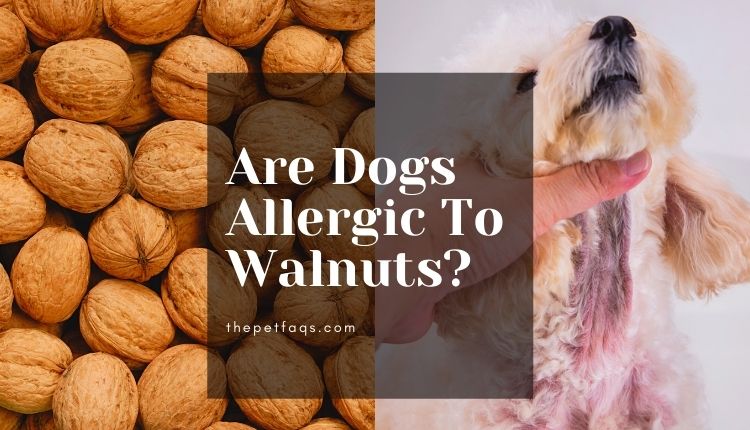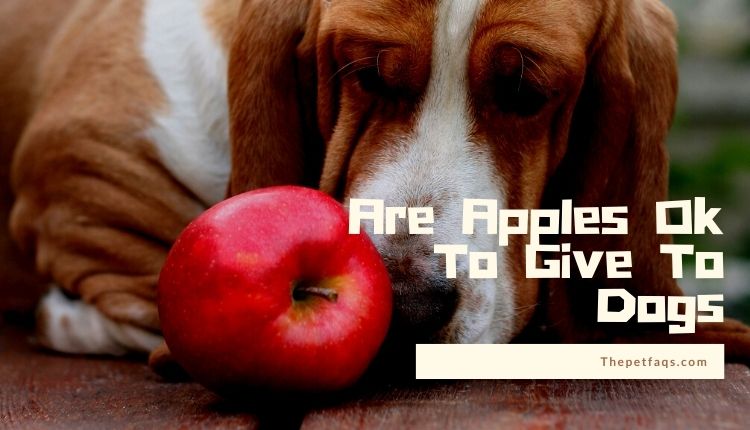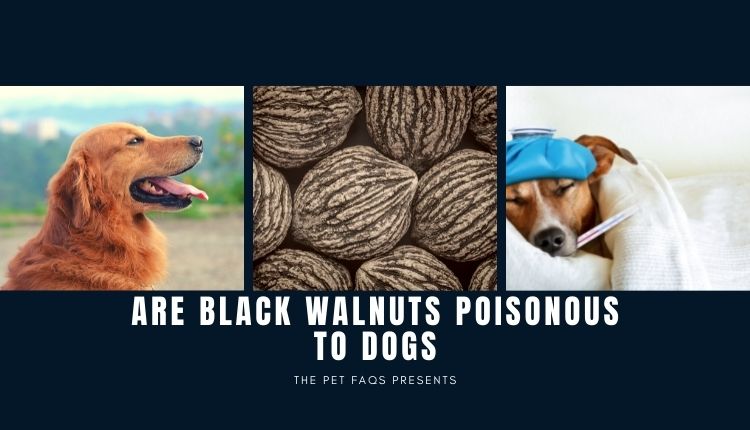Are Dogs Allergic To Walnuts? Here Some Expert Advice
Dogs are supposed to be man’s best friend. But are dogs allergic to walnuts? This article discusses the most common allergy in dogs, which is not caused by a food allergy but rather the way dogs digest nuts. It further discusses the effects of this allergy on both humans and dogs. Dogs are not allergic to walnuts, but they can have an allergy to the nut’s protein.

Dogs with this allergy will generally experience a skin reaction and might develop respiratory problems if they inhale nuts. There is currently no cure for this allergy, but it can be managed with the avoidance of nuts. The most common allergy in dogs is not caused by a food allergy but rather the way they digest nuts.
Dogs are unable to break down the proteins found in nuts, which can cause an allergic response. Symptoms of this allergy include skin rashes and respiratory problems if exposed to nut debris or nuts themselves. There is currently no cure for this type of allergy, but it can be managed with the avoidance of nuts in a dog’s diet.
How Are Dogs Allergic To Walnuts & All Dogs Have Nuts?

Dogs are supposed to be man’s best friend, but, unfortunately, not all nuts are safe for them. There is one nut that is particularly dangerous for dogs – walnuts.
Walnuts are a type of nut that contains a protein that can cause an allergic response in many animals, including dogs.
Walnut Allergy Symptoms in Dogs:

The main symptoms of a walnut allergy in dogs include skin rashes and sometimes respiratory problems if exposed to nuts or nut debris. These symptoms can be very severe and can even lead to death in some cases.
Walnut Allergy Management:
There is currently no cure for a walnut allergy in dogs, but allergy management involves avoiding all nuts in the dog’s diet.
Unfortunately, this may not always be possible, particularly if you have a nut-loving pet like a Yorkie who loves nuts as much as anyone else.
However, by doing your best to avoid nuts in general, you can help to minimize the risk of an allergic reaction.
Are Walnuts Safe for Dogs?
Walnuts are one type of nut that can be dangerous for dogs. Walnuts contain a protein that can cause an allergic response in many animals, including dogs.
Dogs with a walnut allergy may experience skin rashes and sometimes respiratory problems if they’re exposed to nuts or nut debris. These symptoms can be very severe and sometimes lead to death in some cases.
Management of the walnut allergy involves avoiding all nuts in the dog’s diet. This may not always be possible, particularly if your dog loves nuts as much as you do. However, by doing your best to avoid nuts in general, you can help minimize the risk of an allergic reaction.
Are There Health Benefits of Walnuts for Dogs?
There are some potential health benefits of feeding walnuts to your dog. Walnuts contain several vitamins and minerals, including vitamin E and copper.
They also contain omega-3 fatty acids, which are beneficial for dogs’ health. However, there is no evidence that feeding walnuts to dogs affect their mental or physical health specifically.
They Are High in Calories and Can Cause Weight Gain:
One potential downside of feeding walnuts to your dog is high in calories. Each cup (113 grams) of chopped walnuts contains 214 calories.
This can cause weight gain if your dog consumes too many Walnut pieces as part of their regular diet.
In general, it’s essential to monitor the calorie intake and caloric content of foods given to your pet, as overconsumption can lead to obesity and other health issues in animals.
Walnuts Can Cause Allergic Reactions in Some Dogs:
An allergic reaction is one of the potential side effects of feeding walnuts to your dog. Walnut allergy can occur in any animal, but it’s particularly common in dogs.
It causes skin rashes and sometimes respiratory problems if the dog is exposed to nuts or nut debris. These symptoms can be very severe and sometimes lead to death in some cases.
If you’re worried that your dog may be allergic to walnuts, it’s important to talk to your veterinarian about the possibility.
Nuts Have High-Fat Content That Can Cause Pancreatitis:
Another potential downside of feeding walnuts to your dog is that they have a high-fat content. This can lead to pancreatitis, a serious condition in dogs that causes inflammation of the pancreas. Pancreatitis can be fatal if not treated quickly and correctly.
Therefore, it’s important to monitor your pet’s diet carefully and ensure that they are getting enough nutrients from other sources as well as nuts.
Which Types of Nuts Are Safe or Toxic for Dogs?
There is no definitive answer to this question. Different types of nuts may be safe for different types of dogs, and some are more dangerous than others.
It’s essential to research the specific nut ingredients and toxicity levels before giving them to your pet. Some standard unsafe nuts include Brazilian Nut (Iquitos), cashews, hazelnuts, macadamia nuts, pine nuts, pumpkin seeds, and walnuts.
Diagnosis and treatment of walnut poisoning in dogs:
If your dog has eaten walnuts and you suspect that they have gotten into trouble, the best course of action is to call your veterinarian.
They will be able to diagnose the condition and prescribe a treatment plan based on the severity of the poisoning. Treatment may include IV fluids, antibiotics, and pain relief medication.
Recovery of walnut poisoning in dogs:
The prognosis for a dog who has suffered from walnut poisoning is generally good, provided they receive prompt treatment.
However, the long-term effects of the poison on their health are still unknown. Therefore, it’s important to monitor your pet closely and keep track of any changes in their health.
Conclusion:
While nuts are a great source of nutrition for dogs, it’s essential to be aware of the potential dangers associated with them.
Be sure to research each nut before giving it to your pet and take steps to ensure they are getting the nutrients they need safely.





